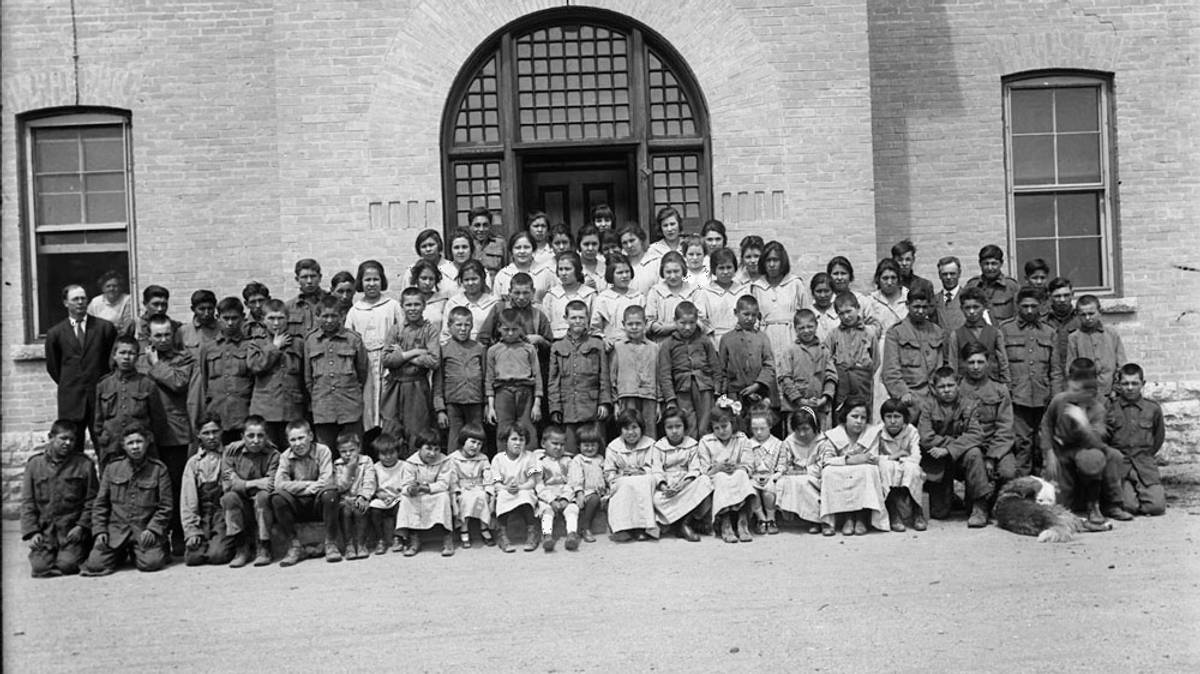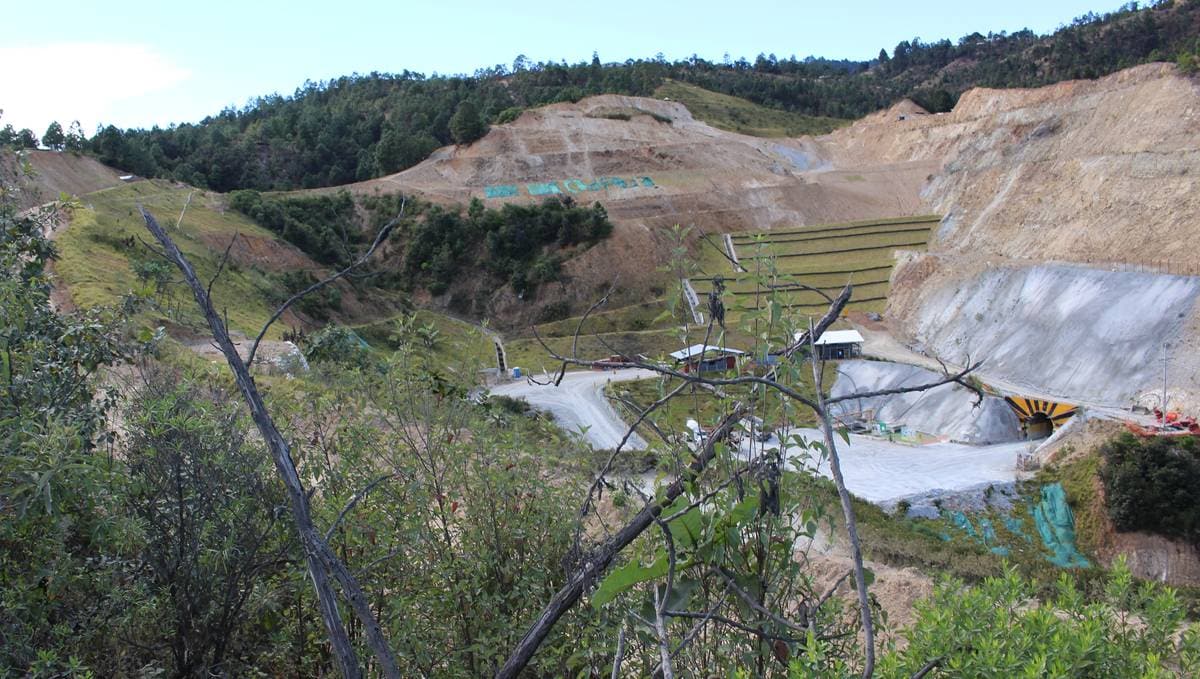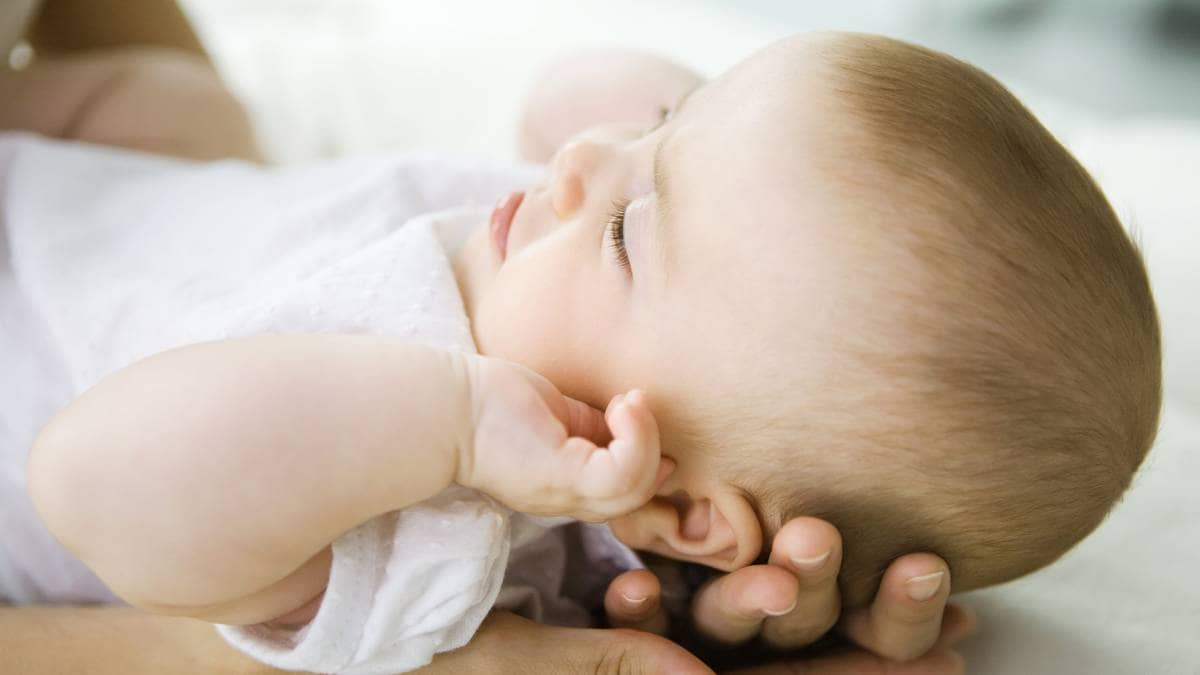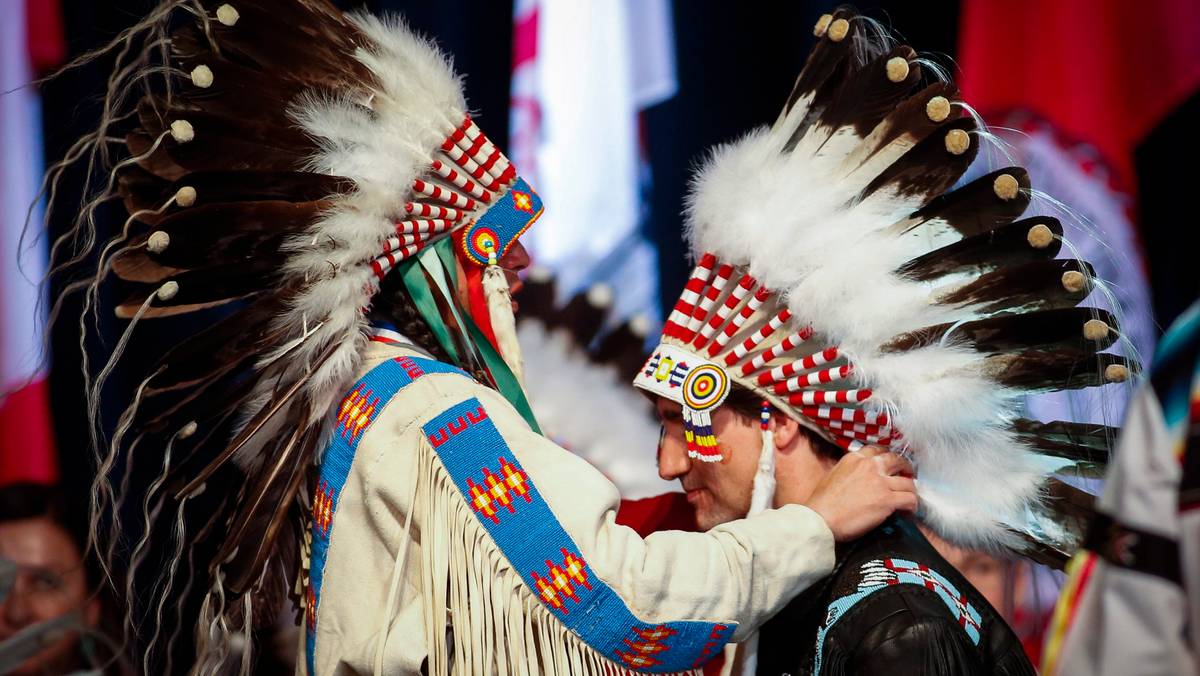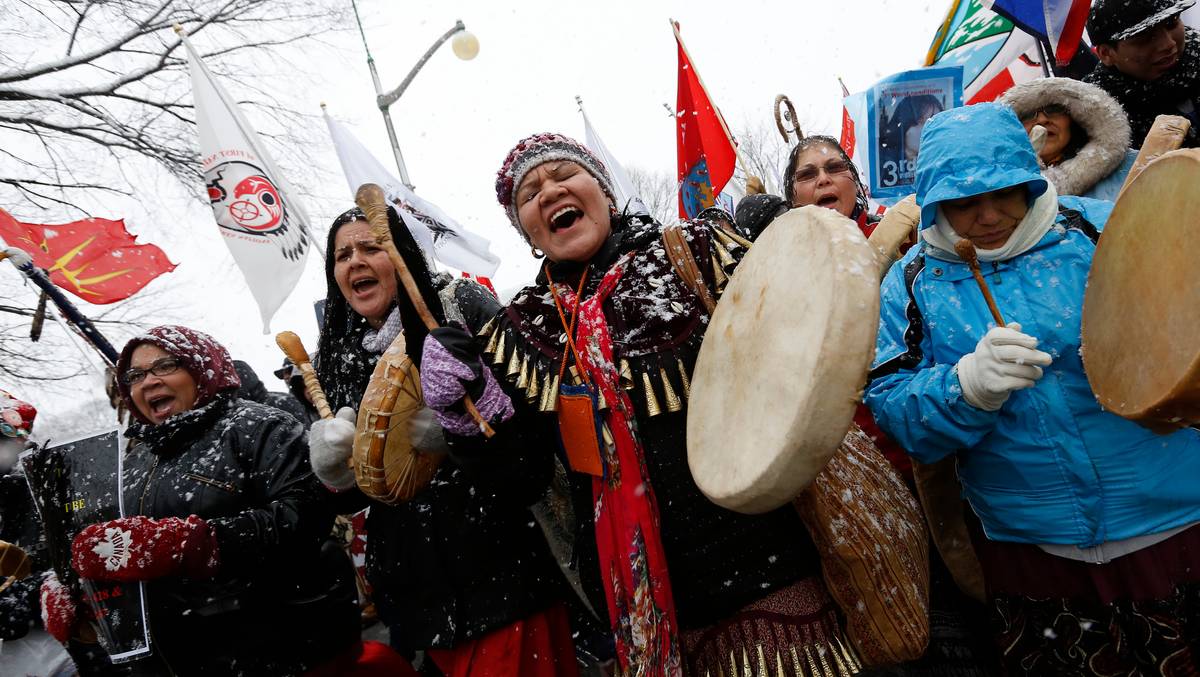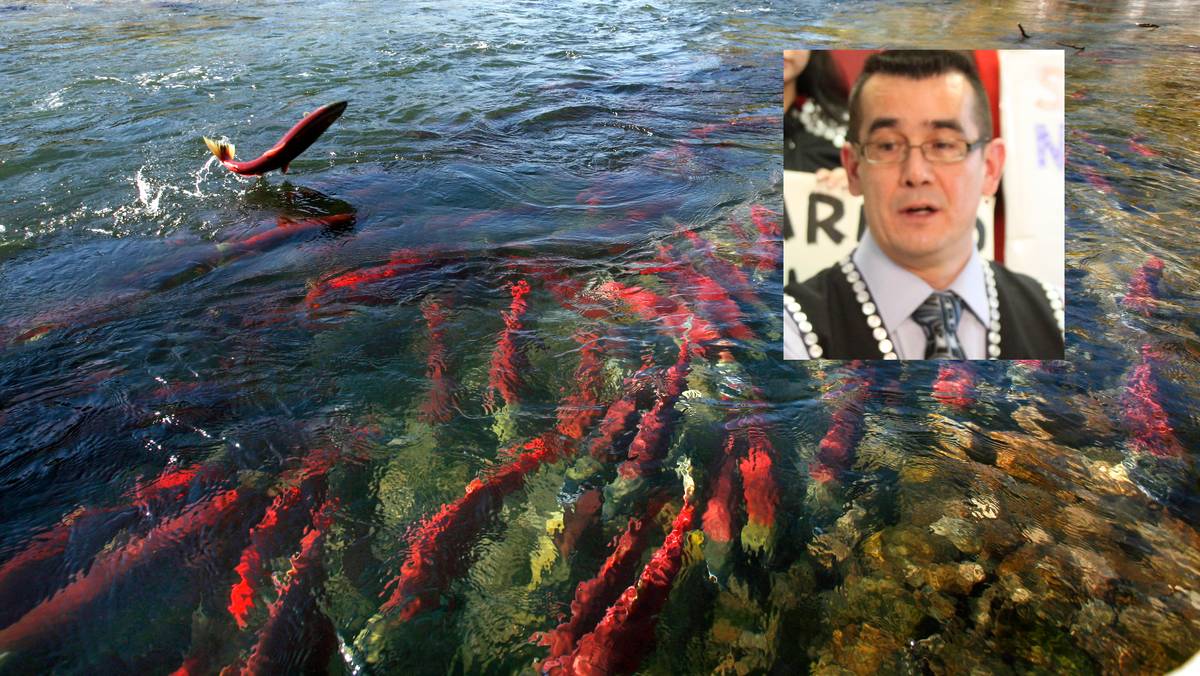What happened in Canada from 1883 to 1996 is described as cultural genocide. The first inhabitants of the country were deprived of their children. They were sent to boarding schools.
There, children were abused, mistreated and malnourished. They were given a number instead of a name. They were refused to speak their mother tongue.
– The Catholic Church in Canada has a history of which it cannot be proud. Among other things, theological understandings helped to legitimize this colonial policy and the implementation of assimilation.
This is what Tore Johnsen, associate professor at Kirkelig utdanningsenter nord at VID Tromsø, tells NRK.
RESEARCHER: Tore Johnsen is an associate professor in the Faculty of Theology, Diakonia and Management.
Photo: Dan Robert Larsen / NRK
Billionaire compensation for indigenous children
Johnsen explains that from the late 18th century there was a widespread theological view in the West that Christianity and culture were closely linked.
Christianity was thought to be associated with high civilization, a gradation that corresponded to notions of racial hierarchy.
– Indigenous cultures were seen as less valuable and lower in the hierarchy. The Christians then thought that the native peoples had to be brought up to their level. It was considered a good deed, says Johnsen., says Johnsen.

TO BE HELPED: Students of the Fort Simpson Indian Residential School
Photo: HANDOUT/Reuters
A federal court this week ordered Canadian authorities to pay compensation of NOK 2-10 billion to the country’s indigenous peoples, writes The Guardian.
Compensation will go to parents and children of Indigenous nations who were previously in state care at Canadian residential schools, reports CNN.
Indigenous peoples call the verdict a great victory.

APOLOGIZED: Prime Minister Justin Trudeau.
Photo: Reuters
This summer, Prime Minister Justin Trudeau asked for an apology for the incredibly destructive policy.
The authorities must pay compensation of up to NOK 270,000 to relatives and children.
It is still unclear how many are affected. Indigenous peoples’ own organizations estimate that more than 50,000 indigenous members may be entitled to compensation.
Hundreds of unmarked graves of children who died of unknown causes in Canadian residential schools have been discovered. The Catholic Church ran several of the boarding schools and issued an apology this week.

Students and a nun pictured in a classroom at the Cross Lake Indian Residential School in Canada in February 1940
Photo: Library and Archives Canada
Approximately 150,000 children have been affected by the Canadian authorities’ assimilation policy towards Aboriginal peoples.
Decolonization
Johnsen researched theology, anti-Sami racism, and the need for decolonization.
In this context, decolonization means discovering how certain mentalities legitimized and naturalized colonial oppression.
He sheds light on the theme in the article “Human first, Christian second”, which will appear shortly.
– The understanding that the Christian faith was tied to a healthy civilization is part of the basis of abuses against Indigenous people in Canada and the Nordic countries, says Johnsen.

NORWEGIANIZATION: Similar to native children in Canada, Sami children were to be trained to become “good Norwegian citizens”. The abuse is not as serious as in Canada. The people in the photo have no direct connection to the case.
Photo: Sverre A. Borretzen / SCANPIX
He says to Our country that theological decolonization has only just begun.
– We need to discuss this decolonization both in the majority society and in the Sami society. Among other things, the Truth and Reconciliation Commission should examine the role of the church in Norwegianization, suggests Johnsen.
He has no opinion on whether the commission should offer individual compensation. In any case, he feels it is important to recognize that the policy of norvegization has not only affected the individuals who have been directly affected, but also the whole collective.
The living conditions on as people radically changed, which was the goal of the whole policy. The assessment of appropriate compensation and reparation measures should therefore take into account both the individual and collective damages suffered by the Sami community, he believes.
Norsification policy refers to the public policy pursued by the Norwegian authorities to assimilate the Sami into Norwegian society.
For about 100 years from around 1850, the official Norwegian policy was that the Sami should become like other Norwegians.
Some think that norvegization still exists today.

“Explorer. Food advocate. Analyst. Freelance bacon practitioner. Future teen idol. Proud pop culture expert.”

